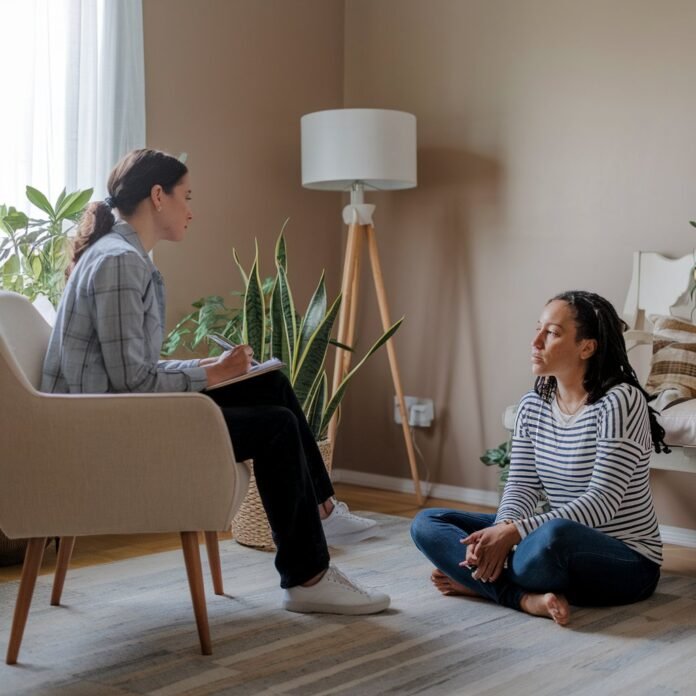Finding someone to talk to when you’re struggling can feel tough. Maybe you’re dealing with stress, anxiety, relationship problems, or past experiences that are still bothering you. You might have heard that therapy helps, but you’re not sure where to start. If you’re looking for a counsellor in Burnaby, this blog is for you.
You’ll learn what to look for in a good therapist, the different types of counselling available, and how to choose someone who makes you feel comfortable and heard.
Why People Look for Counselling
Life can throw a lot at you. Sometimes, it’s a tough breakup or work stress. Other times, it’s something deeper, like childhood trauma or ongoing anxiety. Many people seek help when they start feeling stuck, alone, or overwhelmed.
Talking to a counsellor can help you feel more in control. You’ll get support and tools to help you manage your emotions and make better decisions. It’s not just about solving problems—it’s also about learning more about yourself.
Types of Counselling You Can Choose
There isn’t just one type of therapy. Each person’s needs are different. Here are some of the common options:
1. Individual Therapy
This is a one-on-one session with a therapist. You can talk about anything that’s bothering you. It’s private and focused on your personal experiences.
2. Couples Counselling
If you and your partner are having trouble communicating, fighting often, or growing apart, couples therapy can help. A therapist helps you both talk openly and work on your relationship.
3. Family Therapy
Family issues can affect everyone. Whether it’s conflict between parents and kids or trouble dealing with a big change like divorce, a family therapist helps you talk things through as a group.
4. Support for Neurodivergent People
People with ADHD, autism, or other neurodivergent traits may feel misunderstood. Some therapists focus on helping you understand how your brain works and how to work with it—not against it.
5. Trauma Therapy
If you’ve been through something painful or scary in the past, trauma-focused counselling helps you process those memories in a safe and gentle way.
Common Therapy Methods
Even though you don’t need to know all the details, it’s helpful to understand some common ways counsellors work:
- CBT (Cognitive Behavioural Therapy): Helps you notice and change negative thought patterns.
- ACT (Acceptance and Commitment Therapy): Teaches you to accept your thoughts without letting them control you.
- DBT (Dialectical Behaviour Therapy): Often used for emotional ups and downs and includes skills for calming yourself and dealing with others.
- EMDR (Eye Movement Desensitization and Reprocessing): A method used for trauma where certain eye movements help reduce the emotional pain of memories.
- Somatic Therapy: Focuses on how your body reacts to stress or trauma, using breathing and body awareness to help calm your system.
A good therapist will explain what they use and why it might help you.
How to Pick the Right Counsellor
It’s important to feel safe and respected in therapy. When you meet a new therapist, pay attention to how you feel. Do they listen without judging? Do they explain things clearly?
Here are some things to think about:
- Language and Culture: Some people feel more comfortable with a therapist who shares their background or speaks their language.
- Experience: Check if the counsellor has worked with issues like yours before.
- Therapy Style: Some therapists are more active in sessions, giving you tools and homework. Others let you talk more freely. Think about what feels right for you.
- Online or In-Person: Online sessions can be easier if you have a busy schedule or don’t like traveling. In-person can feel more personal. See what works for you.
- Free Consultations: Many therapists offer a short phone call for free. Use that time to ask questions and see if it feels like a good match.
What You Can Expect in a Session
Your first meeting will likely be about getting to know each other. The counsellor may ask about your goals and what’s been going on in your life. You can ask questions too. You don’t have to share everything right away. You can take your time.
Over time, your sessions will become a place where you can explore your feelings, think about your choices, and learn new ways to handle challenges. Some people see changes quickly. Others need more time. Both are okay.
When to Switch Therapists
Not every therapist will be the right fit—and that’s okay. If you feel like you’re not being understood, or if the sessions aren’t helping, it’s okay to try someone new. You deserve to feel supported and respected.
What About Cost?
Therapy can be expensive, but many places offer a sliding scale, which means the price depends on your income. You can also check if your work benefits cover therapy sessions.
Some therapists focus on making therapy more affordable for everyone. They’ll be open about their rates and may help you find options if their fees are too high.
How to Start
Once you’ve done a bit of research, reach out to a few counsellors. Use their contact form or booking page to set up a call. You don’t need to have the perfect words. A simple message like “Hi, I’m looking for someone to talk to. Can we schedule a consultation?” is enough.
Keep notes on how each call feels. Go with the one where you feel the most at ease.
Start Your healing Journey
Finding a good counsellor in Burnaby doesn’t have to be stressful. Think about what you need, explore your options, and take that first step. It’s okay to try more than one person until you find the right match. Your mental well-being matters, and support is available.
If you’re not sure where to begin, Tulua Therapy in Burnaby is a caring place that offers support for many needs, including anxiety, trauma, and relationship concerns. They make it easy to start and help you feel heard from day one.



